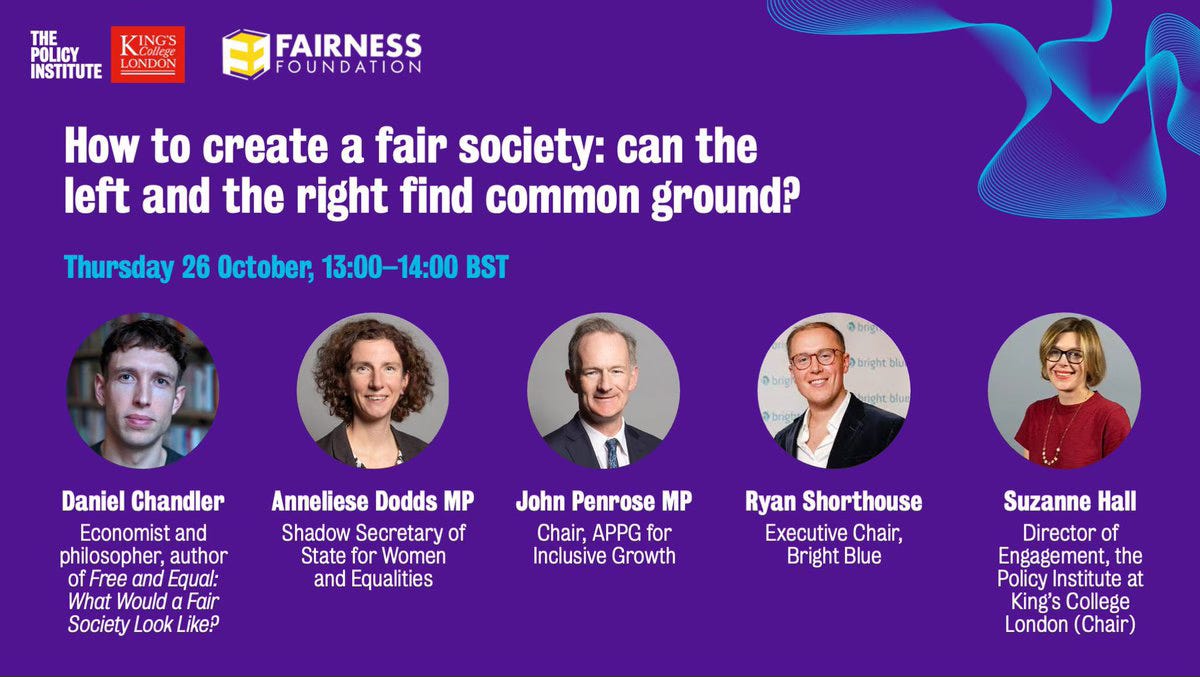Measuring merit and luck
The idea of meritocracy is so potent that many people believe in it despite the evidence that it doesn't exist. Should we pay more attention to the role of luck in life?
Imagine someone on their deathbed, thinking about what had influenced the contours of their life. They might be in a £25m townhouse, or they might be in a tiny flat. For the purpose of this thought experiment, let's think about success in life in very narrow financial terms. How much of their success - or lack of it - was down to them, i.e. due to merit (some combination of talent and hard work)? And how much was due to factors outside their control, which we might call luck (including the circumstances into which they were born)?
This is an important thought experiment, because it has implications for what level of inequality we think can be justified. (It also affects our politics - research has shown that people with low social status who are believed to have failed the “merit test” tend to support populist parties.) If most people think that we live in a meritocracy - where people's life chances and outcomes are mostly influenced by individual merit - then they will accept, and perhaps even demand, a society with high levels of inequality that reflect the inevitable gradations of merit between individuals. By contrast, if most people suspect that factors outside people's control have a larger bearing than merit on people's lives, then high levels of inequality will be seen as unfair and morally unjustifiable.
The polling evidence suggests that only about one in three Britons think we live in a meritocracy. However, meritocratic assumptions are more widely ingrained into society than this would suggest. Many people have a belief in social mobility that belies the facts. Fewer people support redistributive policies than we might expect.
What does the data tell us about whether Britain is a meritocracy? We don't have many hard numbers, of course, because these things are incredibly difficult to measure. There is an emerging academic literature on measuring inequality of opportunity - this is a good primer - but it probably underestimates the extent to which, for example, childhood circumstances influence income inequality, because quantifying some of these structural influences is so tricky to do robustly. Some of the more traditional measures, however, tell a damning story. In the Fairness Index we point to some of most egregious examples of ‘unfair inequality’ in the UK today. The Economics Observatory pointed out in 2021 how “external circumstances affect people’s outcomes as early as in the womb”, with inequalities continuing to widen throughout childhood and into adulthood. They highlighted UK government estimates from 2019 that parental income alone explains 40% of people’s earnings (while the economist Branko Milanovic estimates that when you add factors such as citizenship, gender, race and ethnicity, this rises to above 80%).
Does this mean that the 80/20 principle is in play - that merit (talent and hard work) is only responsible for 20% of people’s earnings, while the other 80% is effectively down to luck (given that we can count the circumstances into which someone is born as the purest form of ‘unearned’ luck)? Talent is arguably down to luck as well, so the real contribution of luck is probably higher still…
A fascinating LinkedIn post by the Canadian author and coach Ray Williams brings together some recent academic research on the relative contributions of luck and merit to career success. Some key findings that he highlights are as follows:
There is evidence that characteristics such as drive, tenacity, creativity and intellectual curiosity influence success, but much of the variation in levels of success between individuals is unaccounted for.
There are several studies showing the impact of luck on success, such as that people born in the winter are more likely to become a CEO than people born in the summer; that people with surnames earlier in the alphabet are more likely to receive tenure at top universities; that people with easy-to-pronounce names are judged more positively than those with difficult-to-pronounce names; and that women lawyers with male-sounding names are more successful than their peers with female-sounding names.
An Italian study created a mathematical simulation to quantify the influence of luck and talent on career success. It found that people of average talent who were lucky were much more successful than those with more talent but less luck.
A recent London Business School article also provided new evidence of the role of luck in business, finding that CEOs are rewarded for good luck, but are not penalised to the same degree for bad luck.
In other words, the research that focuses on people’s careers seems to back up the evidence on society as a whole, which suggests that luck plays a much bigger role than merit in influencing who is ‘successful’ and who is not.
This is a problem on its own terms. But it is a problem that is magnified by our assumption that it doesn’t exist (despite all the evidence to the contrary). We act as though we live in a functioning meritocracy.
For example, we reward people for their previous success, ignoring the role of luck in driving those successes. This creates a virtuous (or vicious) cycle that reinforces the impact of prior good or bad luck - and exacerbates existing inequalities of wealth, income, status and so on. It also wastes talent by depriving people of opportunities.
A more egalitarian way of sharing resources and opportunities, accompanied by high-quality education and a baseline standard of living and level of resources for everyone, would take us a bit closer to a 'true' meritocracy (although many would argue that it is impossible to achieve this in practice, since unequal outcomes in one generation will always lead to unequal opportunities in the next). The philosopher John Rawls gives us some useful principles for thinking about these issues.
There are a couple of interesting side issues that are worth mentioning in passing.
The first is the distinction between ‘earned’ and ‘unearned’ luck. We talked in The Fair Necessities about how this theoretical distinction is impossible to draw in practice, even at the individual level, and so any sensible model of state intervention must assume that good or bad luck is ‘unearned’ and compensate for it to some degree. One approach would be to try to design out bad luck as far as possible.
The second is that surprisingly little attention has been paid to the relative importance of talent versus hard work in contributing to ‘merit’ (or to the belief in meritocracy). A recent study compared how elites in the UK and Denmark talk about merit as a way of justifying their positions in society, to tease this out. The results are fascinating:
In the UK, elites tend to be “talent meritocrats” who foreground their unique capacity for ideational creativity or risk taking, innately good judgment, and “natural” aptitude, intelligence, or academic ability. In contrast, in Denmark, elites are more likely to be “hard work meritocrats” who emphasise their unusual work ethic, extensive experience (as a signal of accumulated hard work), and contributions outside of work, particularly in civil society.
The authors speculate that private schools in the UK encourage people to think that they are uniquely talented, whereas elite employers in Denmark “socialise the connection between hard work and success”.
We’ll be doing some more work on merit, luck and opportunity in the coming months. Please get in touch if you have any ideas about interesting avenues that we could explore on these issues. We’ll also be publishing some polling next month on attitudes to health inequalities, which sheds more light on how people in the UK think about individual responsibility versus structural factors.
FAIRNESS FOUNDATION EVENTS
Speaking of John Rawls, a reminder that on Thursday 26 October we are co-hosting a webinar with the Policy Institute at King’s College London featuring Daniel Chandler, author of a new book on Rawls, Free and Equal: What Would a Fair Society Look Like?, which looks at how his principles can be applied to today’s society and economy. He’ll be talking with Labour and Conservative politicians and commentators about whether left and right can agree on these principles and what this might mean for cross-party consensus on policy solutions. Sign up here.
And if you missed our packed out fringe event at the Labour Party conference last Tuesday, you can watch it below or on our event webpage. The event focused on Labour’s agenda on poverty and inequalities and featured Liam Byrne MP, Professor Bobby Duffy, Director of the Policy Institute, Polly Toynbee at the Guardian, and Emma Revie, CEO of the Trussell Trust.





